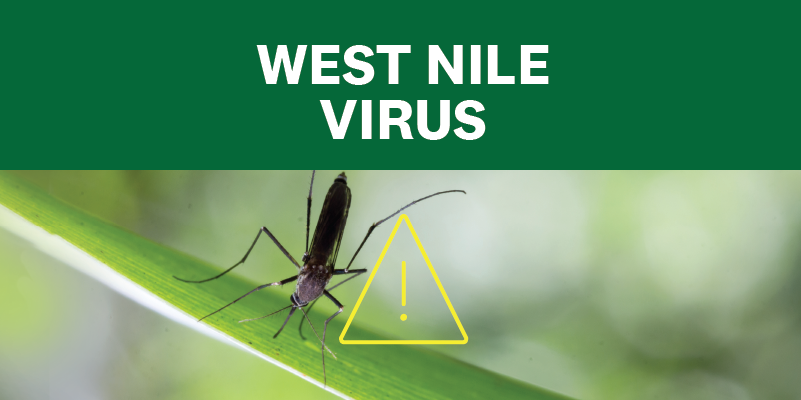City of Austin
FOR IMMEDIATE RELEASERelease Date: Aug. 08, 2025
Contact: APH Media

Austin Public Health (APH) suspects West Nile virus in a resident pending confirmation from the Texas Department of State Health Services.
AUSTIN, Texas – Austin Public Health (APH) suspects West Nile virus in a resident pending confirmation from the Texas Department of State Health Services. This comes after a patient displayed symptoms of the virus to their healthcare provider. As of August 4th, nine mosquito pools have tested positive for West Nile virus in Travis County this season.
“As we're spending time outside enjoying the water and the weather, we must take precautions for mosquitoes and the diseases they can carry,” said Dr. Desmar Walkes, Austin-Travis County Health Authority. “Diseases like West Nile virus can cause serious health issues – take a few minutes out of your day to protect yourself and others.”
West Nile virus is the most common mosquito-borne disease in the United States. It is typically spread to people by the bite of an infected mosquito. According to the Centers for Disease Control and Prevention, West Nile virus is not spread through coughing, sneezing or touching other people or live animals.
Approximately 20 percent of people infected with West Nile virus develop symptoms such as headache, body aches, joint pains, vomiting, diarrhea or rash. Of those infected, some develop further serious symptoms such as seizures or coma due to this illness affecting the central nervous system. People over 60 years of age are at greater risk of developing serious disease, as are those with medical conditions such as cancer, diabetes, hypertension or kidney disease. Organ transplant recipients are also at risk for more severe forms of disease.
In 2024, 101 local mosquito pools tested positive for the virus. Preliminary results, pending finalization by the Texas Department of State Health Services (DSHS), show 33 West Nile virus cases, including two deaths, were reported in Austin-Travis County.
“All the rain we've seen so far this year has created plenty of breeding grounds for mosquitoes,” said Environmental Health Services Division Chief Marcel Elizondo. “Mosquitoes can breed in as little as a bottle cap full of water - be sure to check your property and clear out any standing water you see.”
Fight the Bite Day and Night with the Four Ds:
- Dusk and dawn: Although different species of mosquitoes are active at different times of day, the species that spread West Nile virus are most active between dusk and dawn.
- Dress: Wear pants and long sleeves when you are outside. Wear light-colored, loose-fitting clothing; mosquito-repellent clothing is also available.
- DEET: Apply insect repellent that contains DEET. Read and follow label instructions. Spray both exposed skin and clothing with repellent. Find the Environmental Protection Agency’s list of repellents here.
- Drain: Remove standing water in your yard and neighborhood. Old tires, flowerpots, clogged rain gutters, birdbaths and wading pools can be breeding sites for mosquitoes.
You can learn more about keeping you and your loved ones safe from mosquitoes at austintexas.gov/mosquito.
Materials with information on prevention can be found in APH’s Mosquito Toolkit.

